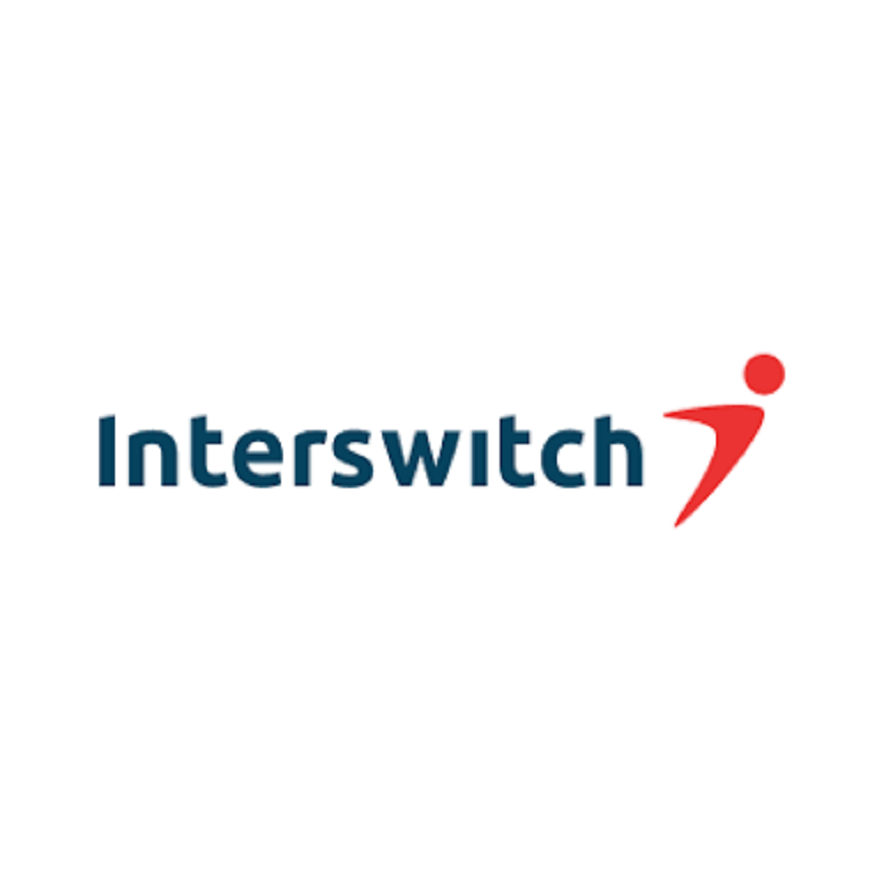Economy
DigiYuan and Global Humanitarian Consortia: Pioneering a New Era of Financial Inclusion

In today’s dynamic landscape of global economics and digital innovation, the rise of digital currencies has introduced a new paradigm of financial inclusivity and cross-border collaboration. Among these trailblazing digital currencies, DigiYuan, China’s central bank digital currency (CBDC), has garnered noteworthy attention due to its capacity not only to reshape the domestic financial landscape but also to assume a pivotal role in influencing the endeavors of Yuan Pay Group The official website, a cryptocurrency trading platform facilitating digital Yuan transactions, within the realm of global humanitarian initiatives. This article takes a comprehensive dive into the ramifications of integrating DigiYuan into the framework of the Global Humanitarian Consortia, elucidating its extensive implications and contributions toward nurturing a more just, interconnected global community.
Unveiling DigiYuan: The Digital Yuan Redefining Finance
The Genesis of DigiYuan
DigiYuan, officially known as the Digital Currency Electronic Payment (DCEP), represents a quantum leap in the evolution of currency. It is a digital version of the Chinese Yuan, issued and backed by the People’s Bank of China. The inception of DigiYuan aims to enhance the efficiency, security, and accessibility of financial transactions, leveraging blockchain technology to create a robust and transparent monetary infrastructure.
Advancing Financial Inclusion
One of the cornerstones of DigiYuan’s design is its potential to drive financial inclusion on a massive scale. Traditional banking systems often overlook marginalized communities, limiting their access to financial services. DigiYuan’s digital nature eliminates geographical barriers, allowing individuals without a traditional bank account to participate in the economy. This inclusivity has the potential to uplift millions from poverty and empower them with newfound economic opportunities.
Pioneering Cross-Border Transactions
DigiYuan has the potential to revolutionize cross-border transactions, simplifying and expediting international trade. Unlike conventional currencies, DigiYuan’s digital form enables seamless cross-border payments, reducing the complexities and delays associated with traditional remittance processes. This efficiency can stimulate global trade and foster economic growth among nations.
Global Humanitarian Consortia: A Vision for Positive Change
Forging a Collaborative Alliance
The Global Humanitarian Consortia (GHC) stands as a testament to the power of international collaboration in addressing pressing global challenges. Comprising governments, non-governmental organizations (NGOs), and private sector entities, GHC seeks to harness collective expertise and resources to drive sustainable development, alleviate poverty, and provide critical aid during crises.
DigiYuan’s Role in GHC: Catalyzing Humanitarian Efforts
DigiYuan’s integration within the framework of GHC marks a transformative leap in the realm of humanitarian assistance. By adopting DigiYuan as a medium of exchange, GHC can streamline financial transactions in crisis-stricken regions, ensuring efficient distribution of aid and resources. The transparency inherent in DigiYuan’s blockchain-based system also enhances accountability and reduces the risk of fraud, ensuring that funds reach those who need them most.
Empowering Vulnerable Populations
The synergy between DigiYuan and GHC empowers vulnerable populations in unprecedented ways. In disaster-stricken areas, where traditional financial infrastructure may be disrupted, DigiYuan offers a lifeline for affected communities to receive immediate assistance. The digital nature of DigiYuan ensures that aid reaches beneficiaries swiftly, minimizing bureaucratic bottlenecks and expediting recovery efforts.
A New Dawn of Global Connectivity
Fostering International Cooperation
The convergence of DigiYuan and the Global Humanitarian Consortia exemplifies the potential of digital currencies to transcend borders and foster international cooperation. As nations join hands to address global challenges, DigiYuan’s digital prowess emerges as a unifying force that transcends linguistic, cultural, and geographical barriers.
Innovation Beyond Finance
Beyond its financial implications, DigiYuan’s integration with GHC underscores the broader impact of digital currencies on shaping a more equitable world. By facilitating seamless cross-border transactions, DigiYuan accelerates the flow of resources, expertise, and aid to regions in need, redefining the dynamics of international solidarity and cooperation.
Conclusion: A Vision Realized
In the grand tapestry of global affairs, the convergence of DigiYuan and the Global Humanitarian Consortia emerges as a defining chapter. As we embrace the digital age, the marriage of technology, finance, and compassion is poised to reshape the world as we know it. DigiYuan’s ascendancy is not merely a story of monetary innovation; it is a testament to the boundless potential of human ingenuity in fostering positive change. As we embark on this transformative journey, let us remember that the seeds we plant today, in the form of DigiYuan and global humanitarian collaboration, hold the promise of a more connected, inclusive, and compassionate future.
Economy
FG Targets Credit Access For 50% Workers By 2030

By Adedapo Adesanya
The Vice President, Mr Kashim Shettima, inaugurated the Board of the Nigerian Consumer Credit Corporation (CREDICORP) and gave a 50 per cent access target for workers, saying consumer credit was critical to Nigeria’s ambition of becoming a one-trillion-dollar economy by 2030.
According to him, President Bola Tinubu established the CREDICORP to build a trusted credit infrastructure, provide catalytic capital to lower borrowing costs, and help Nigerians overcome long-standing cultural resistance to credit.
Speaking on Thursday in Abuja when he inaugurated the board on behalf of the President, the Vice President, in a statement by his spokesman, Mr Stanley Nkwocha, said that the quality of life of Nigerians cannot improve without closing the gap between access to capital and human dignity.
“A civil servant who earns honestly does not have to chase sudden wealth just to buy a vehicle, or save for ten years to buy one. A young professional should not remain in darkness simply because solar power must be paid for all at once,” the Vice President said.
VP Shettima disclosed that in just one year of operations, CREDICORP has disbursed over ₦37 billion in consumer credit to more than 200,000 Nigerians, with over half of them accessing formal credit for the first time.
The Vice President said the organisation was specifically tasked with building credit infrastructure to bridge the trust gap between lenders and borrowers, providing wholesale capital and credit guarantees through its portfolio company.
“Ultimately, these critical jobs of CREDICORP will enable access to consumer credit to at least 50 per cent of working Nigerians by 2030,” he said.
The Vice President explained that the new board’s role was not ceremonial as they are custodians of the organisation’s mission, adding that the long-term strength of the institution would depend on their “vigilance, integrity, sacrifice, and commitment.”
He directed Board members to uphold Public Service Rules, the Board Charter, and all applicable governance frameworks, warning that accountability and stewardship of public resources were non-negotiable.
The Chairman of CREDICORP, Mr Aderemi Abdul, expressed appreciation to President Tinubu for his vision behind the formation of CREDICORP and for the confidence reposed in them, noting that the establishment of the corporation marked an important step towards strengthening the nation’s financial architecture.
He assured President Tinubu that the board understands its responsibility and will guide the institution to deliver meaningful benefits to Nigerians.
For his part, Mr Uzoma Nwagba, Managing Director/CEO of CREDICORP, recalled watching President Tinubu say 20 years ago that consumer credit is one of the major tools that will improve the lives of Nigerians.
He noted that over the past 18 months, the institution has benefited more than 200,000 Nigerians, including students.
He assured that the presidential vision behind CREDICORP would not be taken lightly, as the team considers their appointments a unique, once-in-a-lifetime opportunity.
Other members of the board inaugurated include Mrs Olanike Kolawole, Executive Director, Operations; Mrs Aisha Abdullahi, Executive Director, Credit and Portfolio Management; Mr Armstrong Ume-Takang (MD, MoFI), Representative of MoFI; Mrs Bisoye Coke-Odusote (DG, NIMC), Representative of NIMC; and Mr Mohammed Naziru Abbas, Representative of FMITI.
Others are Mr Marvin Nadah, Representative of FCCPC; Mrs Chinonyelum Ndidi, Representative of the Federal Ministry of Finance; Mr Mohammed Abbas Jega, Independent Director; and Mrs Toyin Adeniji, Independent Director.
Economy
NASD OTC Exchange Rallies 0.23% as Nipco Leads Six Advancers

By Adedapo Adesanya
Six price gainers helped the NASD Over-the-Counter (OTC) Securities Exchange retain its stay in green territory after a 0.23 per cent appreciation on Thursday, February 26.
The price gainers were led by Nipco Plc, which added N25.00 to close at N278.00 per share compared with the previous day’s N253.00 per share, NASD Plc rose by N5.13 to N56.41 per unit versus N51.28 per unit, FrieslandCampina Wamco Nigeria Plc expanded by N2.24 to N102.44 per share from N100.00 per share, Afriland Properties Plc grew by 88 Kobo to N18.88 per unit from N18.00 per unit, 11 Plc increased by 35 Kobo to N277.00 per share from N276.65 per share, and Lagos Building Investment Company (LBIC) Plc gained 27 Kobo to close at N3.75 per unit versus N3.48 per unit.
On the flip side, Central Securities Clearing System (CSCS) Plc lost N1.75 to sell at N68.25 per share versus N70.00 per share, and Geo-Fluids Plc depreciated by 2 Kobo to N3.25 per unit from N3.27 per unit.
The weight of the advancers fortified the NASD Unlisted Security Index (NSI) by 9.21 points to 4,034.46 points from 4,025.25 points, and the market capitalisation soared by N5.51 billion to N2.413 trillion from Wednesday’s N2.408 trillion.
Yesterday, the transaction value jumped by 18.8 per cent to N102.8 million from N80.7 million, and the number of deals surged by 18,8 per cent to 38 deals from 32 deals, while the transaction volume went down by 84.9 per cent to 1.3 million units from 8.7 million units.
At the close of business, CSCS Plc was the most traded stock by value (year-to-date) with 34.2 million units worth N2.04 billion, followed by Okitipupa Plc with 6.3 million units sold for N1.1 billion, and Geo-Fluids Plc with 122.1 million units valued at N478.2 million.
Resourcery Plc remained as the most traded stock by volume (year-to-date) with 1.05 billion units exchanged for N408.7 million, trailed by Geo-Fluids Plc with 122.1 million worth N478.2 million, and CSCS Plc with 34.2 million units traded for N2.04 billion.
Economy
Naira Down Again at NAFEX, Trades N1,359/$1

By Adedapo Adesanya
The Naira further weakened against the Dollar in the Nigerian Autonomous Foreign Exchange Market (NAFEX) for the fourth straight session this week on Thursday, February 26.
At the official market yesterday, the Nigerian Naira lost N3.71 or 0.27 per cent to trade at N1,359.82/$1 compared with the previous session’s N1,356.11/$1.
In the same vein, the local currency depreciated against the Pound Sterling in the same market window on Thursday by N8.27 to close at N1,843.23/£1 versus Wednesday’s closing price of N1,834.96/£1, and against the Euro, it crashed by N8.30 to quote at N1,606.89/€1, in contrast to the midweek’s closing price of N1,598.59/€1.
But at the GTBank forex desk, the exchange rate of the Naira to the Dollar remained unchanged at N1,367/$1, and also at the parallel market, it maintained stability at N1,365/$1.
The continuation of the decline of the Nigerian currency is attributed to a surge in foreign payments that have outpaced the available Dollars in the FX market.
In a move to address the ongoing shortfall at the official window, the Central Bank of Nigeria (CBN) intervened by selling $100 million to banks and dealers on Tuesday.
However, the FX support failed to reverse the trend, though analysts see no cause for alarm, given that the authority recently mopped up foreign currency to achieve balance and it is still within the expected trading range of N1,350 and N1,450/$1.
As for the cryptocurrency market, major tokens posted losses over the last 24 hours as traders continued to de-risk alongside equities following Nvidia’s earnings-driven pullback, with Ripple (XRP) down by 2.7 per cent to $1.40, and Dogecoin (DOGE) down by 1.6 per cent to $0.0098.
Further, Litecoin (LTC) declined by 1.3 per cent to $55.87, Ethereum (ETH) slipped by 0.9 per cent to $2,036.89, Bitcoin (BTC) tumbled by 0.7 per cent to $67,708.21, Cardano (ADA) slumped by 0.6 per cent to $0.2924, and Solana (SOL) depreciated by 0.4 per cent to $87.22, while Binance Coin (BNB) gained 0.4 per cent to sell for $629.95, with the US Dollar Tether (USDT) and the US Dollar Coin (USDC) closing flat at $1.00 each.
-

 Feature/OPED6 years ago
Feature/OPED6 years agoDavos was Different this year
-
Travel/Tourism10 years ago
Lagos Seals Western Lodge Hotel In Ikorodu
-

 Showbiz3 years ago
Showbiz3 years agoEstranged Lover Releases Videos of Empress Njamah Bathing
-

 Banking8 years ago
Banking8 years agoSort Codes of GTBank Branches in Nigeria
-

 Economy3 years ago
Economy3 years agoSubsidy Removal: CNG at N130 Per Litre Cheaper Than Petrol—IPMAN
-

 Banking3 years ago
Banking3 years agoSort Codes of UBA Branches in Nigeria
-

 Banking3 years ago
Banking3 years agoFirst Bank Announces Planned Downtime
-

 Sports3 years ago
Sports3 years agoHighest Paid Nigerian Footballer – How Much Do Nigerian Footballers Earn






















